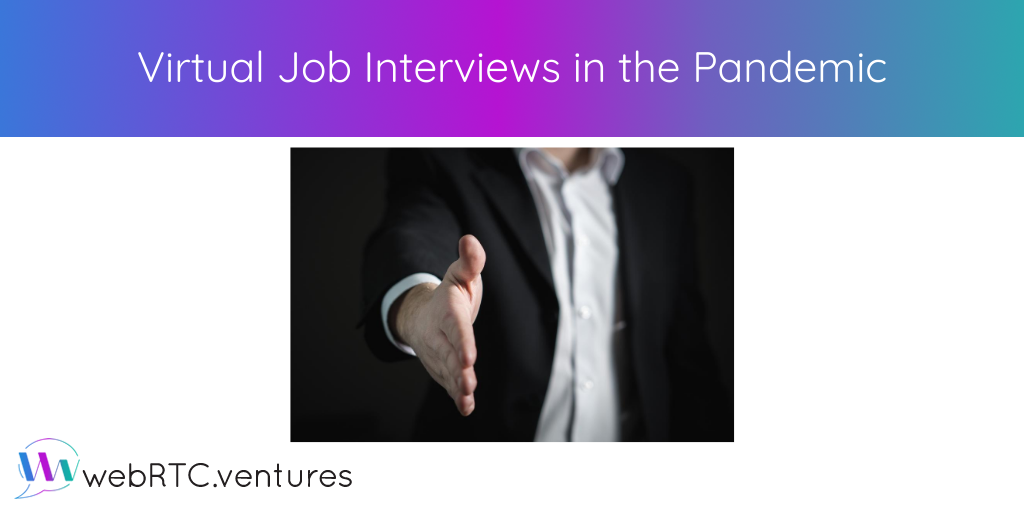Part of our blog series on Virtual Events in the Pandemic.
One of the many things that has changed in 2020 and due to the coronavirus pandemic is job interviews.
As if a pandemic alone is not enough, we are dealing with a global recession as well. Many businesses have had to close or curtail their services due to fewer customers visiting them in person. Other businesses, especially corporate office workers, have switched to a remote work model.
Remote work is a whole different topic, and I’m only going to touch on one aspect of it today. Our team at WebRTC.ventures, and our parent company AgilityFeat, has been doing remote development for the last ten years. We work from home all around North and South America and serve clients around the world.
That means that our team is very accustomed to working remotely. While the pandemic has affected our personal lives greatly, it hasn’t directly affected how we work. It also hasn’t directly affected how we hire new team members because we’ve been conducting remote interviews for a decade.
For many other companies, however, that is not the case. Most companies are accustomed to doing things like a “phone screen” where they hold the first round of interviews remotely, but only as a way to filter down the candidates for the real interview, which is always in person and on site.
When you’re interviewing at a big company, the onsite interview is a big deal. A full day of interviews has typically been scheduled for you, with different supervisors or team members you may work with. There may also be a group meeting where you and other job candidates are briefed by the HR department on the vacation or other benefits packages offered by the company.
Hiring remotely
At WebRTC.ventures, we have worked with multiple clients who have brought parts of that interview process completely online. I won’t go into the details of the work they do, but you can imagine many business processes around the interviewing, hiring, and onboarding processes that could be simplified and managed via a web application. These clients were working on these ideas before the pandemic, and their ideas are even more important now because their business case is no longer just about efficiency or improved workflows; they have to do interviewing and hiring online now, and they often have no other choice.
Therefore, job interviews are yet another example of something we say frequently at WebRTC.ventures: our work is about more than just the video.
If the applications we build were purely about moving a conversation online, then you don’t really need a custom application. Don’t hire us. Pick any common meeting tool and you’ll be fine. (Yes, perhaps even Zoom.)
The reason our clients consider a custom tool is because they realize that the business processes around the video would benefit from a tighter integration. So in the case of job interviews, it could be that either we add video chat to an existing HR application they’ve built, or we build a new application that combines an improved workflow they want along with custom video elements and video-specific processes.
We are not done with social distancing—or the associated changes to our businesses
Sadly, the era of social distancing will not end soon. And even when it does, many of the changes we’re making to our business processes will stick around. That includes conducting many job interviews remotely.
Whether it’s a job interview or some other remote business workflow, maybe you’re getting by with one of those off-the-shelf video conferencing solutions for now. But you shouldn’t be satisfied with that if it’s not efficiently integrated with the rest of your business processes. Those inefficient processes around the video are not going away anytime soon.
If you’re ready to build a custom video application and tackle those inefficiencies, contact us! We can help.











